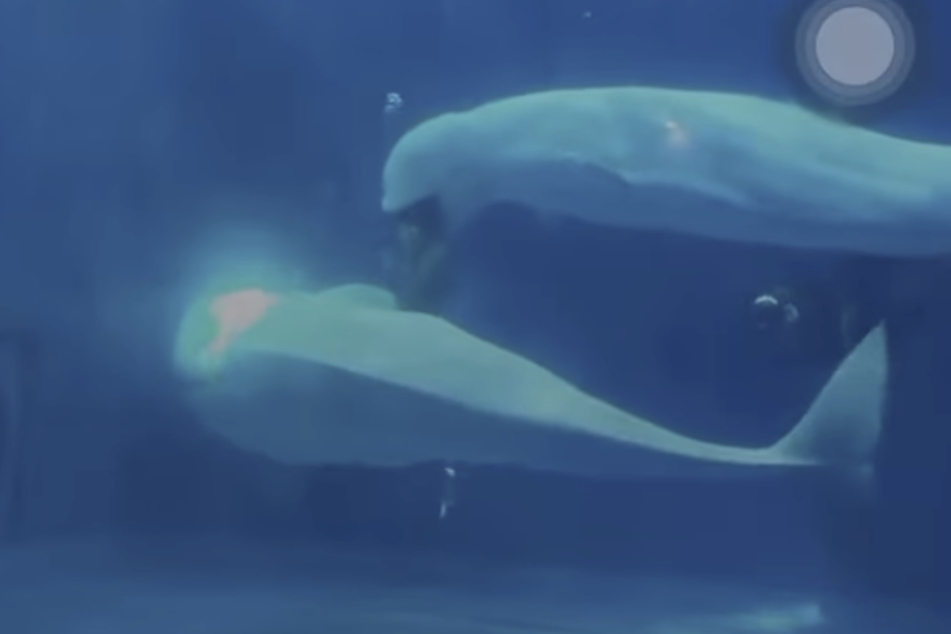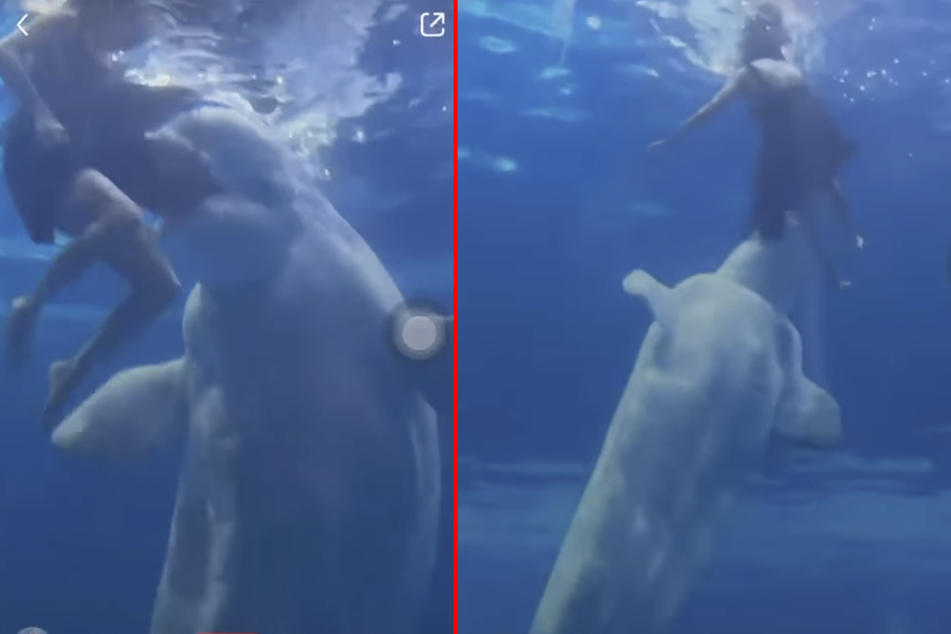Beluga whale bites woman during underwater shoot in concerning video
Yunnan, China - A disturbing video from a Chinese aquarium has sparked a major debate about how safe the booked encounters between humans and animals really are.

The incident – which took place last November at the Stone Forest Ice and Snow World in Yunnan, China – has now been made public by animal rights activists from the China Cetacean Alliance (CCA).
In the video, a woman can be seen swimming in an aquarium containing two beluga whales for an underwater photo shoot.
While the woman is being photographed underwater by a diving photographer, one of the beluga whales suddenly attacks.
Without hesitation, the animal takes the woman's entire head into its mouth for a few seconds, tearing a wig from her head.
The woman then swims to the surface in panic to escape the whale.
But the sea creature has not had enough – it repeatedly attacks the helpless woman, biting at her legs and billowing skirt.
Concerning video raises alarm for human and animal safety risks

"All of these are clearly aggressive behaviors," the animal rights activists from CCA write.
They fear that the woman likely suffered "bruises and abrasions" in addition to a huge shock.
Beluga whales are quite capable of "injuring and holding people underwater, causing more serious injuries or even death."
Animal rights activists also note that this type of reckless behavior could create a safety hazard for the whales as well. For instance, whales could potentially swallow foreign objects in the form of loose fashion accessories like the woman's wig, fabric from her clothing, or any other accessories like jewelry.
Although parks with marine animals are increasingly falling into disrepute, such facilities remain popular in China.
The CCA estimates that at least 1,085 whales were still living in captivity in China in 2020 alone, including 202 beluga whales.
In the parks, it is completely normal for visitors to pay to dive with the whales – especially for the exciting photos.
Cover photo: Collage: Screenshots/Facebook/China Cetacean Alliance

